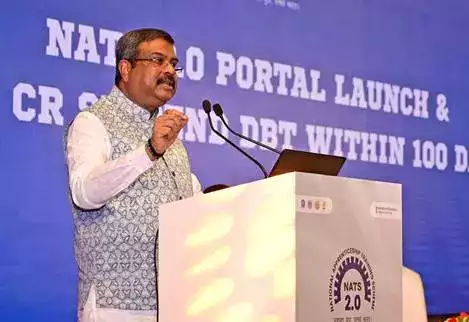On July 30, Union Education Minister Dharmendra Pradhan launched the National Apprenticeship Training Scheme (NATS) 2.0 Portal, along with announcing Rs 100 crore in stipends for apprentices, to be disbursed through the Direct Benefit Transfer (DBT) system. This initiative aims to enhance the skills and employment prospects of young people in sectors such as IT, manufacturing, and automobiles.
NATS 2.0 Portal Overview
The NATS 2.0 Portal simplifies the apprenticeship process by allowing users to register and apply for opportunities while enabling industries to manage job openings and contracts more effectively.
Streamlined Apprenticeship Process
The portal is expected to attract more users, helping young graduates and diploma holders gain practical job skills. It also ensures that apprentices receive a monthly stipend to support them financially during their training.
Insightful Panel Discussions on Apprenticeships
Two panel discussions on the future of apprenticeships were held covering:
- Degree programs that include apprenticeships
- Credits for apprenticeship training
- Collaboration between industries and higher education
- Using technology to enhance the DBT system and e-Governance
Government’s Commitment to Skills Development
Minister Pradhan emphasized the need for education to extend beyond traditional degrees, encouraging institutions to offer courses that enhance employability, as highlighted in this year’s budget. To ensure fair and efficient stipend distribution, the DBT system, introduced in 2024, allows stipends to be sent directly to apprentices’ bank accounts.
Advancing Vocational Education
The NATS 2.0 Portal aligns with the National Education Policy (NEP) 2020, which aims to integrate vocational education into the broader education system. It promotes combining vocational training with general education and supports student mobility through new guidelines for Apprenticeship Embedded Degree Programmes (AEDP) introduced by the UGC and AICTE.












